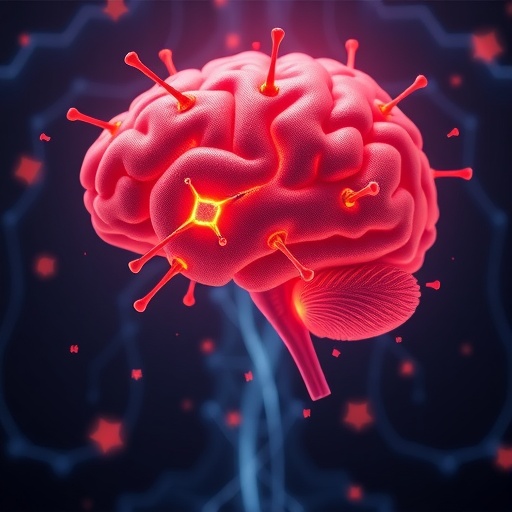In a groundbreaking new study published in BMC Psychiatry, researchers have illuminated a nuanced cognitive facet of generalized anxiety disorder (GAD) that challenges long-held assumptions about information processing in anxiety. While it has been widely believed that anxiety correlates strongly with increased recall of threatening or negative information, this comprehensive analysis across two distinct cohorts reveals a more complex narrative centered around socially rewarding information.
The investigative team, led by Yeung, Tang, Lewis, and colleagues, set out to explore the relationship between the recall of socially rewarding versus socially threatening information and the presence of GAD symptoms. Utilizing robust datasets from a cohort study and a randomized controlled trial, their research provides unprecedented insight into how cognitive biases manifest in individuals with anxiety, particularly those with a history of depressive symptoms.
Initial cognitive theories posited that anxious individuals tend to focus disproportionately on threatening stimuli, thereby enhancing their memory for negative information. Yet, prior empirical attempts to substantiate this claim yielded inconsistent results, leaving a critical gap in understanding the cognitive underpinnings of anxiety disorders. This study addresses that gap by meticulously assessing incidental recall through computer-based word recognition tasks, measuring participants’ capacity to remember words imbued with socially rewarding or socially threatening connotations.
In the cohort study comprising 530 participants—predominantly female—the researchers found compelling evidence that enhanced recall of socially rewarding information strongly correlated with lower concurrent GAD symptom severity. Quantitatively, this inverse relationship was encapsulated by a coefficient of -0.18, with a 95% confidence interval ranging from -0.31 to -0.04. Contrastingly, recall of socially threatening words displayed no statistically significant association with anxiety symptoms, challenging the paradigm that anxiety inherently magnifies threat-related memory.
Adding a longitudinal dimension, GAD symptoms and recall were tracked over multiple time points spaced two weeks apart. Intriguingly, despite the concurrent associations observed, the data revealed no predictive relationship between the recall of either socially rewarding or threatening information and future anxiety symptomatology. This suggests that while memory for positive social cues may reflect current emotional states, it does not serve as a harbinger for the development or exacerbation of anxiety over time.
Complementing these findings, data from a separate randomized controlled trial including 653 participants reinforced the negative association between socially rewarding word recall and anxiety severity measured at baseline. Here, the association coefficient was notably higher at -0.32, with confidence intervals between -0.56 and -0.08, reaffirming that diminished memory for positive social stimuli is a concurrent marker of rising anxiety symptoms in clinical populations with depressive backgrounds.
Through advanced multilevel linear and standard linear regression analyses, adjusted for potential confounders, the study firmly delineates that GAD is characterized less by an exaggerated focus on social threat and more by a compromised recall of socially rewarding information. This nuanced cognitive profile, heretofore underrecognized, hints at altered reward processing circuits implicated in anxiety disorders.
Additionally, these revelations hold profound implications for clinical practice and therapeutic interventions. If individuals with generalized anxiety exhibit a reduced ability to recall socially rewarding experiences, treatments that bolster positive memory encoding or retrieval might offer innovative pathways to mitigate anxiety. Cognitive-behavioral therapies may benefit from integrating strategies that enhance attention to and memory for positive social interactions.
This research also provocatively shifts the dialogue about anxiety as primarily a threat-centric disorder, suggesting that deficits in processing rewarding social information could be equally, if not more, pivotal. Underlying neurological mechanisms might involve dysregulation of neural networks mediating reward sensitivity, such as the mesolimbic dopamine pathway, which warrants further neuroscientific exploration.
While the study’s strengths include its large sample sizes and replication across diverse cohorts, future research may explore whether augmenting recall of positive social information longitudinally impacts anxiety trajectories. Additionally, integrating neuroimaging could elucidate the brain circuits involved, providing objective biomarkers for tailored interventions.
Overall, the study reframes anxiety research by demonstrating that the hallmark cognitive bias in generalized anxiety disorder may be a diminished recall of rewarding social cues rather than an enhanced focus on threats. This paradigm shift opens new avenues for understanding the emotional and cognitive substrates of anxiety and developing novel therapeutic techniques aimed at restoring the balance between threat perception and the processing of social rewards.
As the field progresses, these insights stress the importance of targeting social cognition and reward processing in anxiety disorders, which might ultimately transform prevention and treatment strategies for millions affected worldwide. The delicate interplay between memory, social experience, and anxiety unveiled in this work underscores how cognitive neuroscience continues to unravel the intricate fabric of mental health conditions.
Subject of Research: The relationship between recall of socially rewarding and threatening information and symptoms of generalized anxiety disorder (GAD).
Article Title: Variation in the recall of socially rewarding information and symptoms of generalised anxiety: evidence from two cohorts.
Article References:
Yeung, C.L., Tang, P., Lewis, G. et al. Variation in the recall of socially rewarding information and symptoms of generalised anxiety: evidence from two cohorts. BMC Psychiatry 25, 1009 (2025). https://doi.org/10.1186/s12888-025-07402-1
Image Credits: AI Generated




